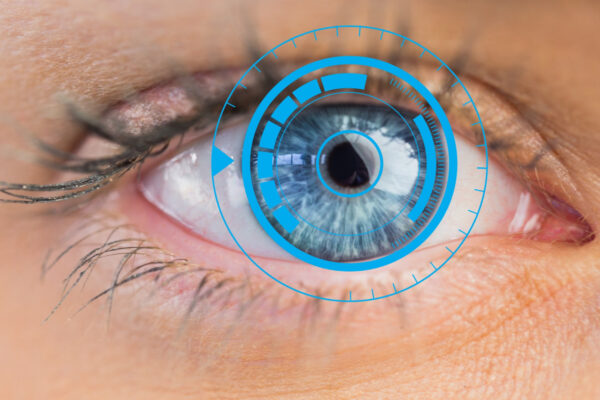LASIK eye surgery has gained significant popularity due to its patient-friendly approach in several key areas. Notably, the LASIK procedure itself is swift, typically taking around 15 minutes for both eyes. Additionally, the healing process is often rapid and characterized by minimal discomfort. Patients can anticipate noticeable visual improvements shortly after the procedure, enabling them to resume most of their preferred activities. While LASIK boasts a high degree of consistency in outcomes, it’s essential to acknowledge a few remaining questions such as is LASIK eye surgery painful?
Will Your LASIK Eye Surgery Be Painful? Nope! Here’s Why
If you’re worried if LASIK eye surgery is painful. Fear not! The goal of LASIK is to gently reshape the cornea, treating only very, very small portions of tissue, by using a precise laser. Throughout the process, your LASIK surgeon will also take every step to ensure that you are comfortable.
- Local Anesthetic – Before your LASIK eye surgery begins, your LASIK specialist will use eye drops to numb the surface of your eyes. These eye drops feel just like the type that you’d normally use to lubricate dry eyes, but contain a numbing agent so that you shouldn’t feel anything, except some pressure, during your LASIK procedure.
- No Sedation – With LASIK, you don’t have to worry about heavy sedatives, receiving injections of anesthetics, or “going to sleep” during the procedure. Those eye drops really do all of the numbing that you need, and the lack of heavy general anesthesia means you don’t have to worry about that foggy, groggy feeling after your LASIK surgery is complete.
- During LASIK Surgery – During surgery, the first step is creating the flap. You may feel a pressure sensation, but it is more of an odd or uncomfortable feeling than a painful one. Your eyelids will be held open with a special tool during the procedure, and while this may feel a little strange it is unlikely to cause any pain.
- Excimer Laser – The cool beam of the excimer laser used to perform LASIK eye surgery is incredibly precise, and guided by a computer which maps the structure of your eyes down to a microscopic level. During the portion of LASIK when your cornea is being reshaped, you actually shouldn’t feel any discomfort at all.
After your LASIK eye surgery is complete, you may notice some minor pain, itching, or discomfort as your eyes heal and your vision stabilizes. These symptoms are common, and typically clear up quickly as your eyes go through the healing process. So while no surgery can truly claim to be completely pain-free, LASIK surgery is about as close as it gets – both during and after your procedure.
Understanding the LASIK Procedure

To better understand why LASIK is not painful, it is important to grasp how the surgery works. LASIK involves reshaping the cornea using a precise laser, targeting very small portions of tissue. Throughout the process, the LASIK surgeon takes every step to ensure patient comfort.
- Local Anesthetic and No Sedation
- One key aspect of LASIK’s minimal pain is the use of local anesthetic eye drops, which numb the surface of the eyes. These drops eliminate pain during the procedure, and the absence of sedation means patients won’t experience grogginess or a foggy feeling afterward.
- Sensations During LASIK Surgery
- During the surgery, patients may feel some pressure and discomfort, but not pain. The eyelids are held open with a special tool, which might feel strange but is not painful. The excimer laser used in LASIK is cool, precise, and guided by a computer, ensuring no discomfort during the cornea reshaping process.
- Post-Surgery Symptoms and Recovery
- After LASIK surgery, it is common to experience minor pain, itching, or discomfort as the eyes heal and vision stabilizes. These symptoms typically clear up quickly, making LASIK one of the least painful surgical procedures available.
How does LASIK feel?
During the LASIK procedure, patients may feel some pressure and discomfort, but not pain. Before the surgery, the LASIK surgeon will use eye drops to numb the surface of the eyes. These eye drops contain a numbing agent that eliminates pain during the procedure, and the absence of sedation means patients won’t experience grogginess or a foggy feeling afterward.
During the surgery, the first step is creating the flap. You may feel a pressure sensation, but it is more of an odd or uncomfortable feeling than a painful one. Your eyelids will be held open with a special tool during the procedure, and while this may feel a little strange it is unlikely to cause any pain. The excimer laser used in LASIK is cool, precise, and guided by a computer, ensuring no discomfort during the cornea reshaping process.
Does LASIK hurt after the procedure?
After LASIK surgery, it is common to experience minor pain, itching, or discomfort as the eyes heal and vision stabilizes. However, these symptoms are typically short-lived and clear up quickly as the eyes go through the healing process. Some patients may experience dry eyes or blurred vision for a few days or weeks after the procedure, but these symptoms can usually be managed with eye drops and will gradually improve over time.
It is important to note that while LASIK is generally a safe and effective procedure, like any surgery, it does carry some risks. Complications such as infection, inflammation, or problems with the flap can occur, but these are rare and can usually be treated with medication or additional surgery if needed.
In conclusion, LASIK eye surgery is a highly desirable option for vision correction due to its minimally invasive nature, use of local anesthetic, and quick recovery time. While no surgery can be entirely pain-free, LASIK comes close. Patients may feel some pressure and discomfort during the procedure, but not pain. After the surgery, it is common to experience minor pain, itching, or discomfort as the eyes heal and vision stabilizes. However, these symptoms are usually short-lived and can be managed with eye drops. If you are considering LASIK, it is important to discuss any concerns or questions you may have with your LASIK surgeon.
The Healing Process After Your LASIK Procedure
When it comes to the healing process after LASIK, there are some important steps you can take to ensure a smooth and comfortable recovery. Your LASIK surgeon will provide detailed instructions on post-operative care, but here are some general tips to keep in mind:
- Rest and Relaxation: After the procedure, it is important to rest your eyes as much as possible. You may need to take a few days off work to allow your eyes to recover fully.
- Avoid Rubbing Your Eyes: Rubbing your eyes after LASIK can increase the risk of infection and may cause discomfort. It is important to avoid rubbing your eyes for several weeks after the procedure.
- Use Eye Drops: Your LASIK surgeon will likely prescribe eye drops to use after the procedure. These drops help to reduce inflammation, prevent infection, and keep your eyes moisturized. It is important to use the drops as directed to ensure proper healing.
- Wear Protective Eyewear: After LASIK, it is important to wear sunglasses or other protective eyewear when outside to protect your eyes from UV radiation and other irritants.
- Attend Follow-up Appointments: Your LASIK surgeon will schedule follow-up appointments to monitor your healing progress and ensure that you are recovering properly. It is important to attend these appointments to catch any potential complications early on.
In addition to these tips, it is also important to follow a healthy lifestyle to promote healing after LASIK. This includes eating a balanced diet, getting enough rest, and avoiding smoking and excessive alcohol consumption.
Frequently asked questions on the LASIK Procedure:
A: While LASIK is not entirely pain-free, most patients do not experience any pain during the procedure. Eye drops are used to numb the surface of the eyes, and the lack of heavy sedation means patients won’t experience grogginess or a foggy feeling afterward. During the procedure, patients may feel some pressure and discomfort, but not pain.
A: The initial healing process after LASIK typically takes about 24 to 48 hours. However, it may take several weeks for your vision to stabilize fully. During this time, you may experience some minor pain, itching, or discomfort as your eyes heal.
A: LASIK is a safe and effective procedure for most patients. However, like any surgery, it does carry some risks. Potential complications include infection, inflammation, or problems with the flap. These risks are rare and can usually be treated with medication or additional surgery if needed.
A: Yes, LASIK can be performed on both eyes at the same time. This is typically the preferred method, as it allows for a more symmetrical correction of vision.
A: LASIK is generally considered an elective procedure and is not typically covered by insurance. However, some insurance plans may offer partial coverage or discounts for LASIK surgery.
In summary, LASIK eye surgery is a safe and effective option for vision correction that causes minimal pain and discomfort. While the healing process can take a few weeks, most patients experience a quick recovery and can return to their normal activities soon after the procedure. If you are considering LASIK, it is important to discuss any concerns or questions you may have with your LASIK surgeon to ensure that you are well-informed and prepared for the procedure.
About the Author:
Having performed more than 138,000 refractive surgery procedures, Dr. Bruce January is considered one of the most prolific and experienced refractive surgeons in the world. Dr. January is certified by the American Board of Ophthalmology and a member of the American Society of Cataract and Refractive Surgery. He is a member of the American Academy of Ophthalmology, which honored him with the Lifelong Education Award.
Dr. January earned a medical degree from the University of Tennessee and completed an ophthalmology residency at the internationally recognized, top-ranked Emory University Eye Center in Atlanta.Dedicated to inspiring children to achieve their dreams, Dr. January speaks at schools serving the underprivileged. In his free-time, Dr. January enjoys spending time with his family, scuba diving, gardening, and “anything to do with health, diet, and physical fitness”.

Categories:



